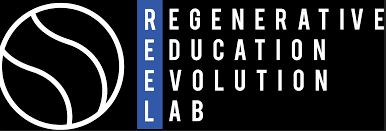REEL Aims to Disrupt Med School Model


Ray Robinson thinks the med school model is in need of disruption because even the best doctors aren’t always effective educators. His company Regenerative Education Evolution Lab (REEL) wants to change that, with a learning management system that helps medical students learn material faster and track weekly progress, all while also allowing the educator to make data-driven decisions through assistive intelligence and data visualization.
But before I can get the interview, Robinson has to take a comp exam for his next doctoral program.
Robinson already has his MD, MPH and MBA (“Every degree is for a purpose,” he says. “They are all for a project that is meaningful and has relevance to who I am.”) and just sat for his Doctorate in Medical Education exam — a degree he pursued because of his passion to teach medicine in a way that’s not only effective, but leads to saving more lives.
He says his life experience influenced the startup. While working at Johns Hopkins, he was involved in patient safety research, looking into central line bloodstream infections, which are a preventable condition killing about 30,000 people a year. The team at Hopkins found that by using a checklist, like the one used by pilots, they could empower a culture change by making sure the 5-item checklist was followed prior to inserting a central line. “The real trick was changing the culture in the ICU and giving the ability for a nurse to stop a physician from inserting a central line if the checklist was not followed,” he says. “You would have thought we started World War III.” The big takeaway was the realization that culture change is much harder than just changing behavior.
“We’ve essentially created a profession of good standardized test takers, not good physicians.”
One of his next positions was as a teacher in a medical school in the Caribbean. “Ninety percent of my students were American citizens that hadn’t tested well enough to be accepted into traditional med schools,” he says. “They were smart kids who didn’t test well on standardized tests.”
“The American Association of American Medical Colleges predicts a physician deficit of 139,000 by 2033. Even after successfully graduating from medical school, 20% of all medical graduates applying to internship/residency struggle to match into a job, often because of passing but lower board scores,” he adds. “Something doesn’t make sense. We’ve essentially created a profession of good standardized test takers, not good physicians.”
His experience led to a question: If doctors are practicing evidence-based medicine, why aren’t medical faculty using evidence-based education to train future physicians?
“He argues that all educators, especially university faculty who are not often educated in the field of education, need to learn the evidence on the best teaching and learning practice, how memory works. For instance, how long does it take for a person to remember something long-term, and how long does it take a person to forget? “REEL captures that data and so it can be used to customize subsequent quizzes [and] content, and given to students, educators and universities for improvement.”
“So here I am,” he says. “Trying to create a culture change with data-driven teaching and learning.”
REEL is a learning management system that focuses on the science of learning. It is unique to each student, featuring a question bank tied to their exact classes, mapped to their learning objectives and using machine learning algorithms and natural language processing to support knowledge generation and learning. Not only is the student able to access a question bank that only covers exactly what they are learning in class (not the case with off-the-shelf question banks), but questions will repeat based on each student’s personal needs. And the professor can access the platform to see what concepts are being mastered, and which ones are not.
“When students use subscription question banks, the data about the subjects they are having trouble with is not available to educators,” emphasizes Robinson, “REEL captures that data and so it can be used to customize subsequent quizzes [and] content, and given to students, educators and universities for improvement.”
“Launching REEL in Happy Valley has provided really interesting opportunities,” Robinson says. “Tightly knit groups, like this entrepreneurial ecosystem, can make significant change.
Over the past few years, REEL has worked with Ben Franklin Technology Partners. Robinson went through the TechCelerator program in 2019 and later received funding so he could “hit the ground running” after REEL was out of prototype stage. This summer, REEL received another seed round of funding from Ben Franklin, this time with a focus on making it a market-centric platform.
“Launching REEL in Happy Valley has provided really interesting opportunities,” Robinson says. “Tightly knit groups, like this entrepreneurial ecosystem, can make significant change. It keeps you tightly focused. There are a lot of resources and opportunities here, along with the potential to really foster and expedite a major culture change here in Happy Valley.”
Cara Aungst writes about industry, innovation and how Happy Valley ideas change the world. She can be reached with story ideas and comments at Cara@AffinityConnection.com.

